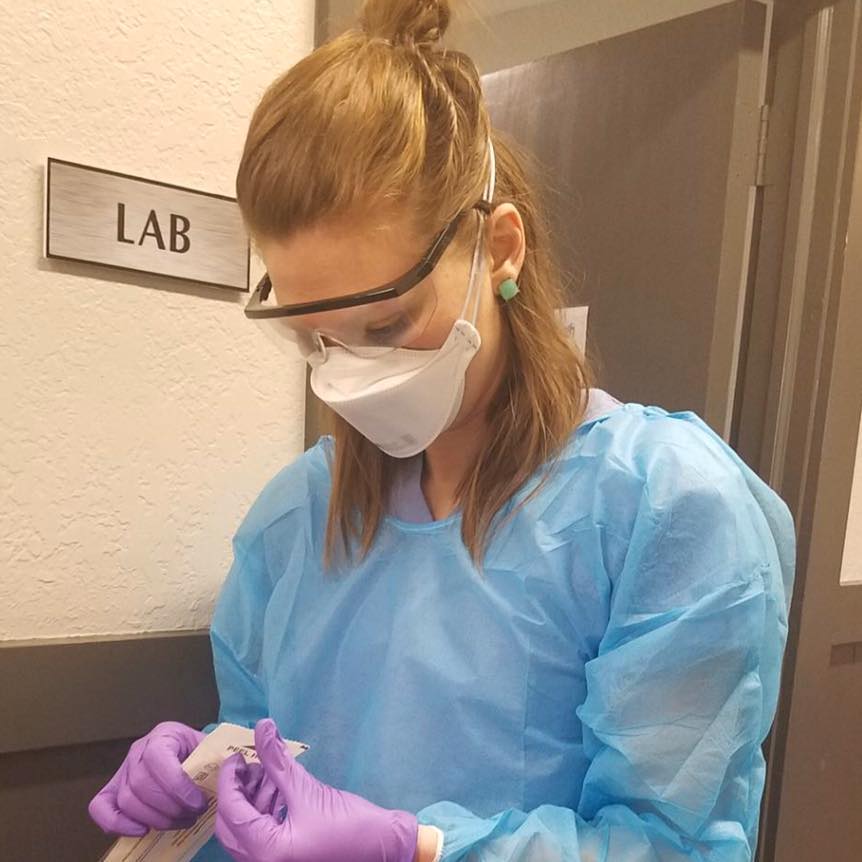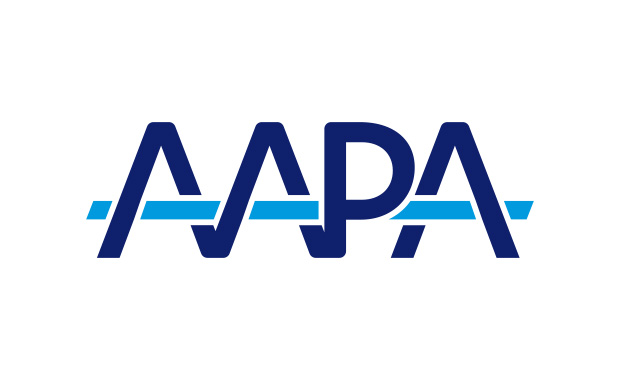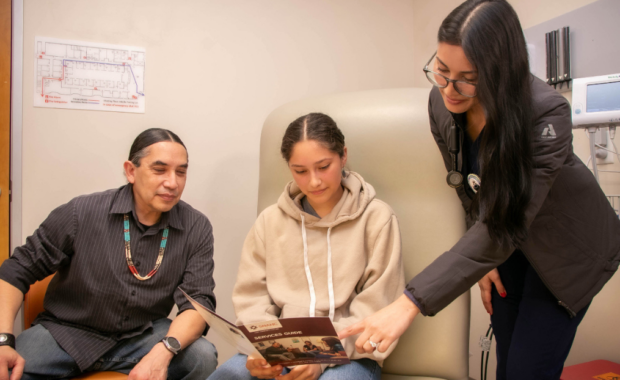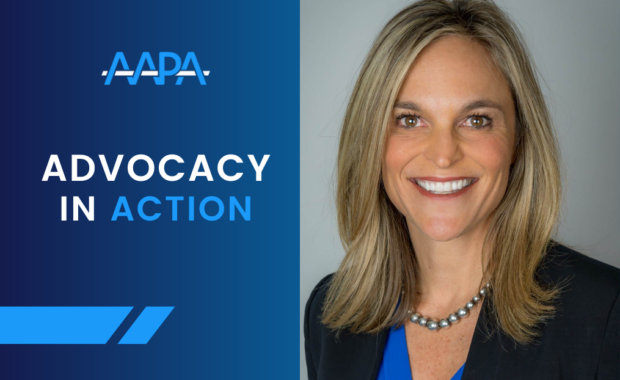PAs on the Front Lines: Brittany Arnett in Pediatrics
‘This is the most memorable moment in my PA career’
April 8, 2020

Brittany Arnett, PA-C, has been practicing for nine years and works in pediatrics in Clayton, Georgia. She started discussing COVID-19 with her colleagues in late January, weeks before it reached her small town. “We saw the train wreck coming,” she says.
Her experience
“By far, this is the most memorable moment in my PA career, rivaling the fears of my first day of practice after graduation, the excitement of urgent care and family medicine, and the challenges of solo practice in rural Georgia. Perhaps, though, this is the time for which I have been called to medicine, called to step up.
“In late January, my coworker Jami and I discussed our increasing concern for China’s COVID-19 crisis, and the high likelihood that the U.S. would not be spared. We saw the train wreck coming. She decided, wisely, to order more supplies for the office. I ordered washable masks in case supply dwindled as it did in China. And two weeks later, every company we order from was out of masks, hand sanitizer, and protective gear. A new shipment came right as our original PPE supply ran out. We watched as COVID-19 crossed the ocean, traipsed into our country, and spread ever closer to us. We scoured the news nightly (my new all-consuming pastime) and dealt with corresponding insomnia. We rekindled our prayer lives.
“We were among the very first offices in our region to start testing – about the same time as the local hospital – because of our preemptively-ordered and highly-treasured COVID-19 swabs. I went to bat, with the Public Health Department supporting me, to explain to the state why testing kids at lower risk of complications was just as important as testing severe adult cases due to carrier status.
“The Mercer University PA students I precept could not believe the timing of their very first rotation in the field after didactic year. They saw national and state rules changed, out-of-the-box thinking, and real-time problem solving among a staff of four people. They saw telemedicine being implemented for the first time within my company. And they saw their second rotations get cancelled in advance.
“To date, we have no pediatric positives in this office, but our county just announced the first two confirmed adult cases last weekend. Several swabs are pending. It seems inevitable. I’ve worked on my living will, like many other providers have, just in case. We are pleading with the community to take social distancing seriously, and it appears to be making some difference, especially as stories from the rest of the country flood in. We try to keep our little town informed and sort through the panic and hysteria for reliable facts and good advice. The responsibility weighs heavily. But I suspect THIS is what I was made for. A time such as this. To be the light, as a representative of the PA profession. I will continue to pray for those of you in the worst of circumstances. Please know that your examples and outcomes will likely make the difference for communities like ours, and that we greatly appreciate it.”
[COVID-19 and PA Students: How the Pandemic Affected Me]
Her advice
Arnett is a forward-thinking leader. She shares five pieces of advice for other PAs as the country responds to COVID-19.
- Advocate for yourself, but also advocate for your staff and company as a whole.
- Speak up in your community when you see questionable decision making in times of impending crisis (e.g., plead privately with leaders to shut down larger group gatherings before anyone else in the area has proposed such actions).
- Even in times of crisis, consult a lawyer before signing any contracts or contract amendments. Do not rush into signing anything just because our world looks different than it did.
- If you’re more than 5 years out of school, watch closely for the signs of professional burnout and ask for help from employers, supervising physicians, and even from the state medical board early on. Times of crisis can stop burnout in its tracks and reinvigorate us as providers. But for some PAs – overworked in the EDs, Med Surg floors, and ICUs during the crisis – it may precipitate burnout. Serve your community loyally, but stop short of that mental and physical point of no return. And know you are not alone.
- You are the most important person during a crisis like this; if you get sick, the snowball effect is huge. Set guidelines for yourself in advance. This crisis has taken down many a provider, many in their 50s and 60s and some of whom heroically took care of others during PPE shortage in their hospitals.
Brittany Arnett, PA-C, practices pediatric medicine in Clayton, Georgia.
Please consider sharing your own experience on the front lines of the COVID-19 response with us.
You May Also Like
Not on the Front Lines? Ways You Can Help With COVID-19 Response
AAPA Calls on Governors to Empower Physician Assistants in COVID-19 Fight
How a PA in Telehealth is Helping Respond to COVID-19
Rush University PAs Integral to Coronavirus Response
Thank you for reading AAPA’s News Central
You have 2 articles left this month. Create a free account to read more stories, or become a member for more access to exclusive benefits! Already have an account? Log in.




